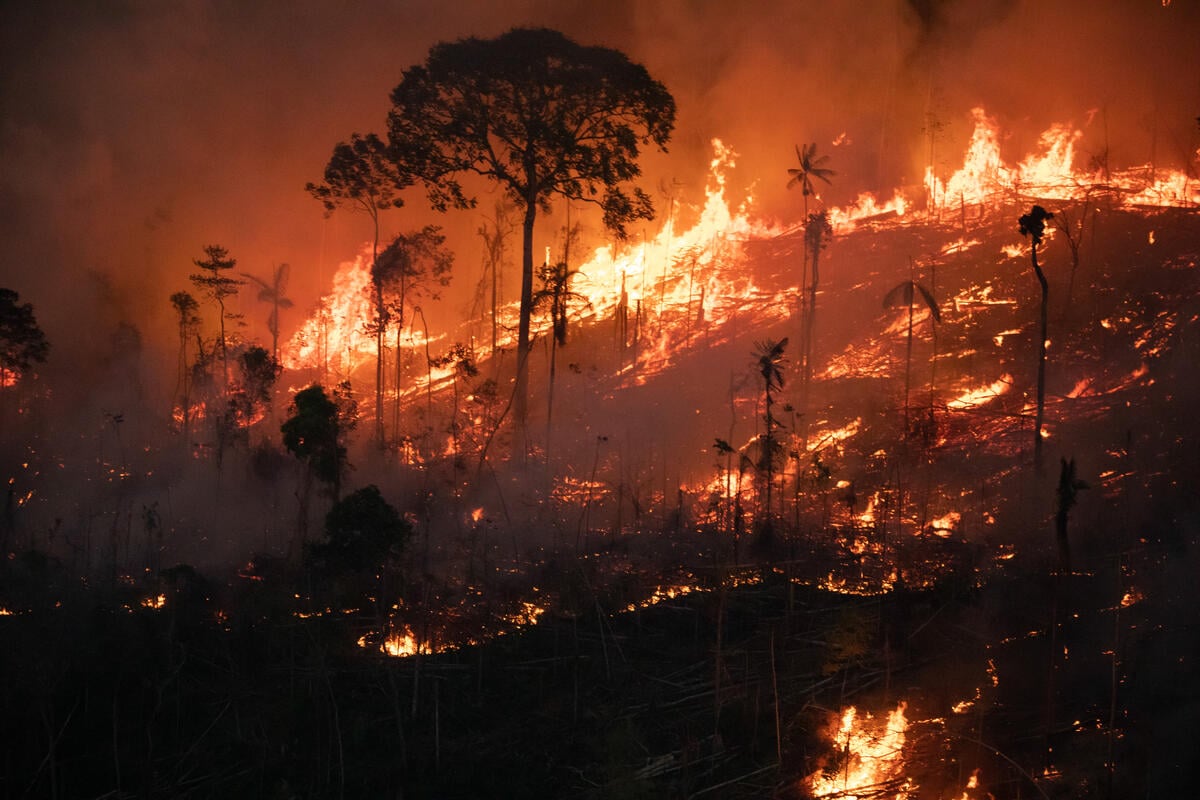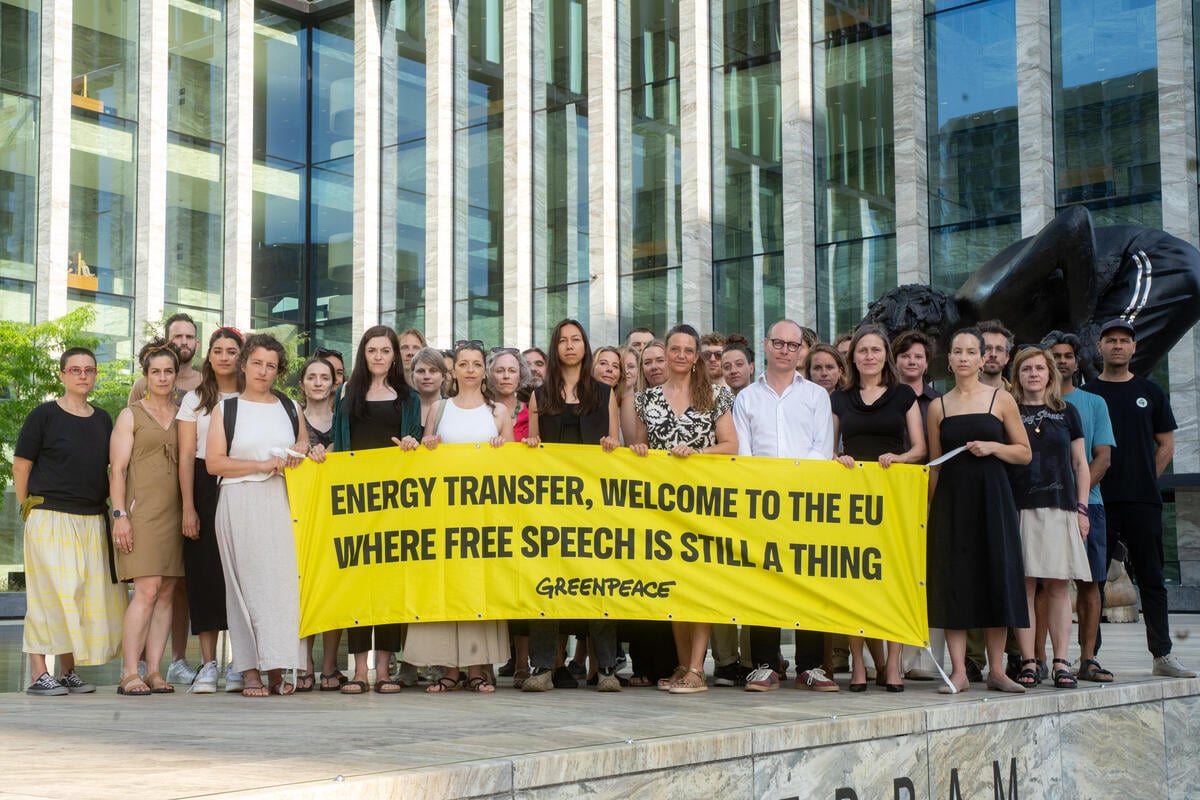What’s happening right now in British Columbia is heartbreaking and terrifying.
Record-breaking rainfall followed by massive flooding has forced thousands of people to flee their homes. At least one person has been killed, and at least two more are missing. Homes are underwater, highways have been washed out, railway lines are down. Vancouver, home to over a half a million people and Canada’s busiest port, has lost its primary road and rail connections to the rest of the country. Highways could take weeks or months to reopen, and some industry sources are saying rail services could be down for weeks.
Only a few months ago B.C. was suffering from a climate-fueled heatwave and wildfires. These fires have actually increased the harm caused by the floods, by making the natural landscape less able to absorb water, and by subjecting B.C. communities to yet another disaster when they were still reeling from the last one. After Lytton, B.C. was burnt to the ground in this summer’s climate fires, many residents were relocated to nearby Merritt, B.C. But now Merritt is under an evacuation order due to flooding and those people have had to relocate yet again.
The Climate Crisis Is Here
These disasters are a reminder that the climate crisis is here, and it’s destructive and deadly.
The B.C. floods are connected to climate change in several ways. The most direct involves the ‘atmospheric river’ which carried moisture from the Pacific Ocean and dumped it on B.C. in torrential rains. Warm air can carry more moisture, and warm oceans can release more moisture into the air, so as the climate warms the atmospheric rivers we experience in Canada are expected to get more intense.
Indeed, climate change-fueled intense rainfall and catastrophic flooding in B.C. were both predictable and predicted. The Toronto Star, for example, ran a detailed piece in 2019 about the risks climate-fueled rainfall and flooding could pose to B.C. A 2016 report projecting climate change impacts for the Metro Vancouver region warned of “stronger and more frequent extreme rainfall events” and that “the largest increases [in precipitation] will occur in the fall season.” The report also warned “extreme rainfall events may be beyond the frequency and intensity of events for which we are currently prepared. If they were to be managed by our current infrastructure, we could expect periods of flooding, damage to property, and risks to human health… Extreme precipitation events may also affect slope stability, increase erosion and risk of landslides, and cause flooding in low lying areas. This may cause damage to personal property and public infrastructure.”
Climate change has also made the flooding worse by driving wildfires that alter the soil and remove vegetation to make the landscape less absorbent. Bad forestry practices such as clear cutting have also destroyed old growth trees that help suck up rainwater and mitigate flooding. The forestry industry and the province of B.C. have degraded critical living infrastructure that could have helped reduce the flooding, and were even warned this is exactly what would happen.
The devastation in B.C. is a heartbreaking illustration of how the climate crisis is a health crisis, an economic crisis, a human crisis. Lives have been lost and upended, homes destroyed, whole communities left in ruins. The shutdown of the Port of Vancouver, which moves $550 million in goods every day, may exacerbate supply chain disruptions caused by the pandemic and could drive up food costs for Canadians and even globally. It’s a reminder that fighting climate change and protecting the environment are not a matter of ‘environment vs. economy’, because the environment is in fact the foundation on which our economy and our lives are built.
How did we get into this terrible situation?
It’s really important to remember that climate disasters are not accidents. Scientists have been warning about the dangers of climate change for decades, and for just as long people have been trying to bring in policies that would reduce emissions and avert the crisis.
But the fossil fuel industry has consistently and very effectively used its tremendous political power to block, water down and delay sensible climate policies that would reduce emissions, simply because they didn’t want to sell fewer products. They have been doing this for decades, and they are still doing it now.
The fossil fuel industry has many allies and enablers who share responsibility for the climate disasters we’re seeing. Conservative politicians like Jason Kenney, Doug Ford, and Stephen Harper have used their power and influence to attack climate action. Both Liberal and NDP governments continue to shower the oil and gas industry with billions in public subsidies and supports (the Trudeau government even bought a pipeline). Just this week, as B.C. suffers from catastrophic flooding, RCMP officers are being deployed to Wet’suwet’en territory to force construction of the Coastal GasLink pipeline. This is part of a larger pattern of fossil fuel colonialism that’s driving the climate crisis. The Big Canadian banks—RBC, TD, CIBC, BMO, Scotiabank—have poured hundreds of billions of dollars into the fossil fuel industry over the past 5 years, including the Coastal GasLink pipeline, and show little sign of slowing down. And there are many more.
But the good news is the fossil fuel industry is in retreat. Thanks to tremendous activism from Indigenous land defenders, climate-concerned youth, and countless others (perhaps including you!), the fossil fuel industry’s stranglehold over our politics is loosening and we’re seeing more climate action from many levels of government.
We’re still facing a terrible climate crisis, as the events in B.C. show, but if we can continue to grow our movement we can defeat the fossil fuel industry and finally bring emissions down to zero.
What you can do
Now is a critical time to come together to support impacted communities and demand action to stop the fossil fuel pollution that’s driving these disasters.
“We don’t want pity. We want action.” – Patrick Mitchell, Chief of the Kanaka Bar First Nation
Here are some actions you can take:
- Support impacted communities: communities in B.C. need our support right now. Offer a helping hand where you can, donate to worthwhile fundraisers, and make sure our leaders are listening to impacted communities and attending to their needs.
- Join the movement: Sign our petition to support Wet’suwet’en Land Defenders and call on the Big Banks—TD, RBC, BMO, CIBC, and Scotiabank —to stop pouring financial fuel on the climate fire and start respecting Indigenous rights.
- Become a climate activist: the climate crisis can’t be solved just with one or two actions, so we all need to make acting on climate part of our lifestyles. Becoming a climate activist is the most important lifestyle choice you can make to stop the climate crisis. Every week, take a political action for climate: share an article, call your MP, volunteer for an environmental organization. The more you do it, the easier it will get, and the bigger impact you’ll have.
The climate crisis will keep getting worse, disasters like what is happening in B.C. will get more frequent and more intense, until we phase out the fossil fuel industry that’s causing the climate crisis. We CAN beat the fossil fuel industry, but we can only do it if we act together. Join us.



